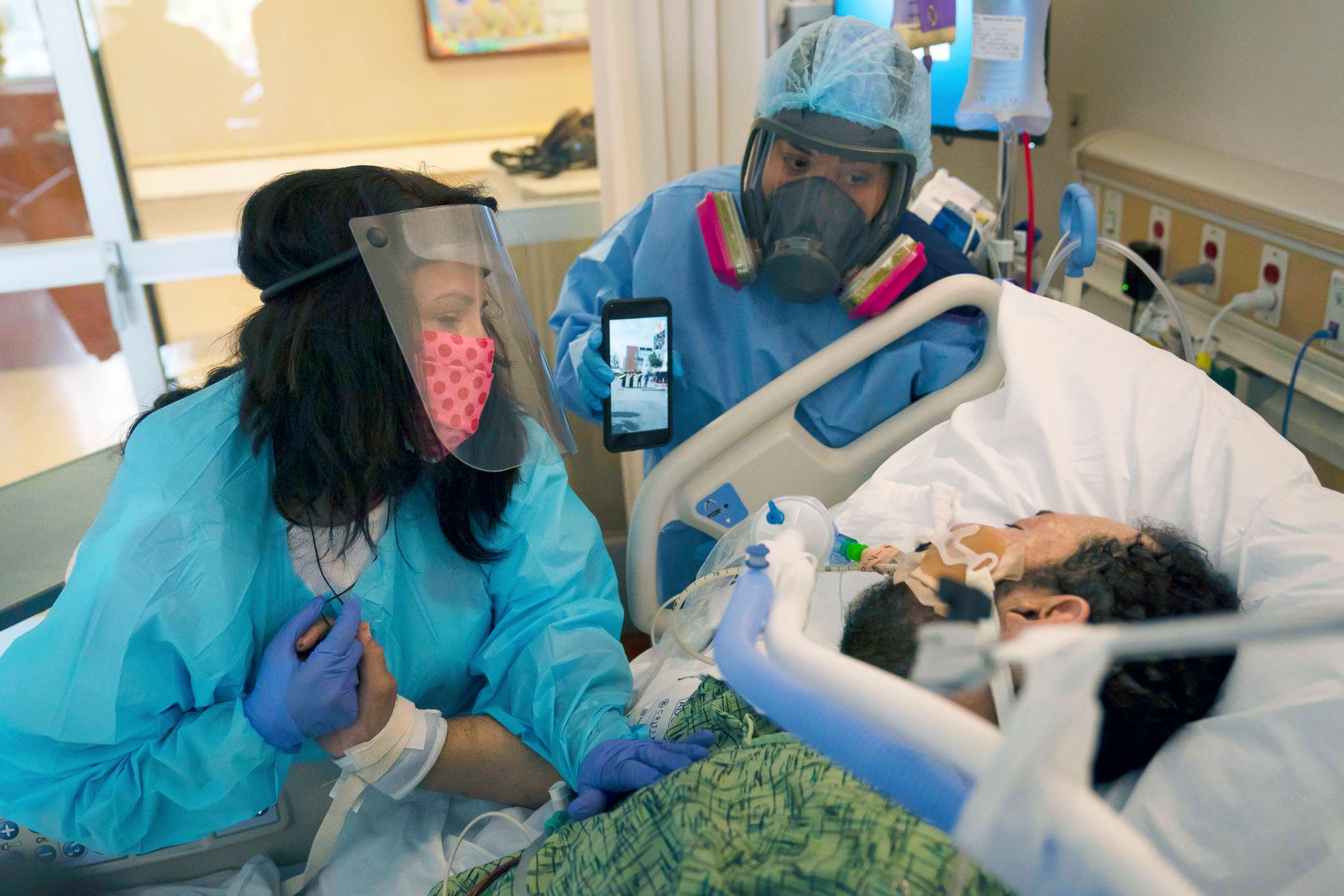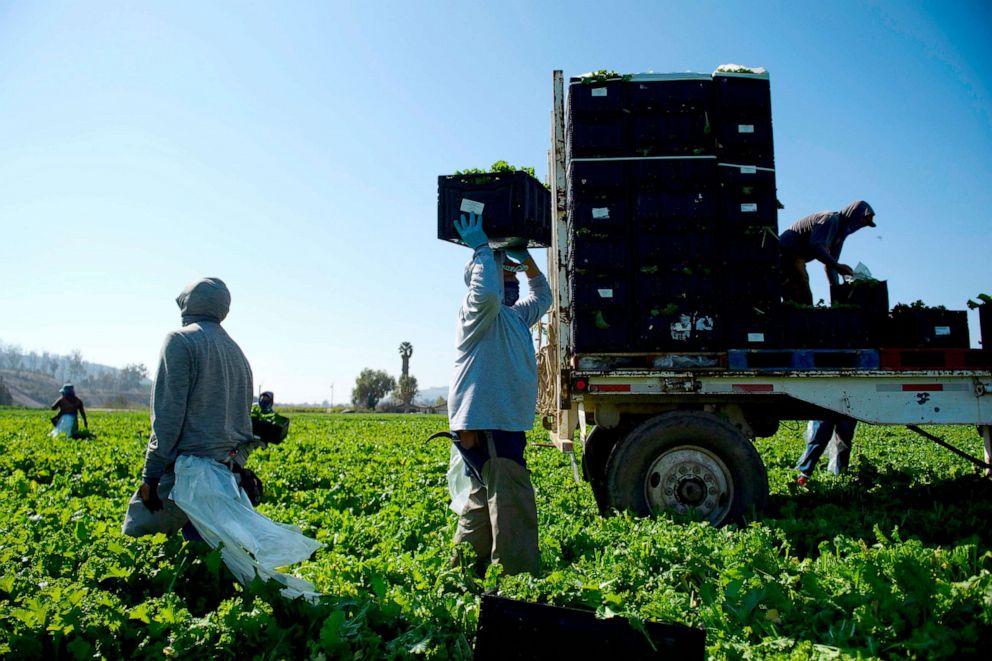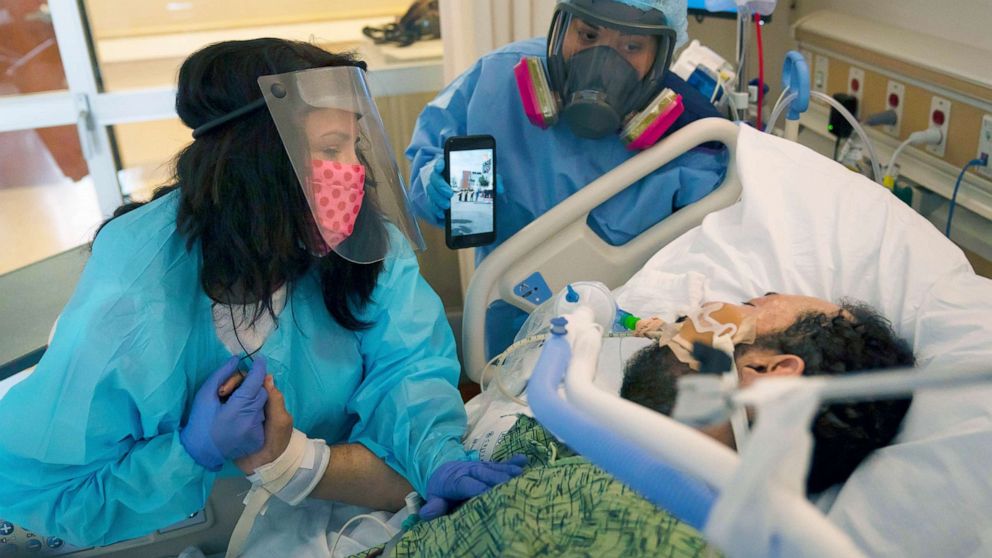As US surpasses half a million COVID-19 deaths, Latinos continue to feel impact of virus
During the coronavirus pandemic's deadly peak last summer, Maggie Saldana begged her parents to stay home and not work. Saldana feared that her father, a grape picker, and her mother, an employee at a meatpacking house, would be exposed to the virus that was devastating the Latino community in California.
"I was hearing from people around me that agriculture workers were dying from COVID, and I was so scared for my parents," said Saldana. "My mother decided to stay home, but it was not an easy decision."
Because of her family's financial situation, Saldana's father was forced to continue working in the fields, in crowded spaces without protective equipment.
Fortunately, said Saldana, his health has held up.
"My father is one of the lucky ones because he never got sick," Saldana told ABC News. "But it has been hard to make ends meet, and I knew early on that my family was not alone."
Now, with the U.S. surpassing 500,000 deaths due to COVID-19, Saldana and her parents are among thousands of Latinos across the country who continue to feel the devastation of the pandemic.
For months, Saldana has been spending her free time raising funds to purchase protective equipment for field and meatpacking workers across the country. According to the U.S. Department of Agriculture, 80% of farm workers identify as Latino/Hispanic.
Latinos across the U.S. have been disproportionately affected by the coronavirus; although they make up only a small part of the population, they account for a disproportionately large number of COVID-19 cases and deaths.
According to CDC data, Hispanics and non-Hispanic Blacks are both about twice as likely to die from COVID-19 than non-Hispanic whites. As of Feb. 17, more than 83,000 Hispanics had died from the virus.

"COVID-19 actually pulled back the curtain on health disparities and economic disparities in the Latino community," said Frankie Miranda, president of Hispanic Federation, a nonprofit organization that helps support Latino families and institutions. "And Latino communities in places like California are still getting the worst of COVID."
In Los Angeles County, a recent COVID-19 surge led to a 1,000% case increase among Latinos. Throughout California, Latinos now make up 55% of all cases and 46% of all deaths.
Dr. Jorge Moreno, an assistant professor of medicine at Yale School of Medicine, told ABC News that one of the main reasons Latinos in the U.S. are becoming infected and dying at disproportionately high rates is because for many Latinos, their jobs require them to leave home without being able to socially distance.
According to the UC Berkeley Labor Center, Latino workers also have the highest rate of employment in essential front-line jobs, where there's a higher risk of exposure to COVID-19.
"Latinos who are essential workers don't have the luxury to work from home," Moreno said. "They work at the grocery store, in manufacturing plants, farms. They work in jobs where there is constant exposure to the virus."

Latinos are also more susceptible to the spread of the virus because many live in dense housing and crowded living conditions, he said.
"Latinos tend to live in multigenerational homes," said Moreno. "They live with other people, so if you're exposed at work, you bring it home and expose your kids or your grandmother."
And now, with the rate of new coronavirus cases finally dropping nationwide, experts tell ABC News that Latinos are facing a new challenge: vaccine hesitancy.
Experts tell ABC News there are historical reasons for Latinos to be wary of the COVID-19 vaccine. In the 1950s, more than a thousand Puerto Rican women were given experimental birth control pills without being told they were part of a controversial clinical trial.
"When you have been so distrustful of government, that trauma persists," said Miranda. "People are also concerned about whether they have insurance coverage or not. And messaging is also important. Officials need to make sure that messaging about the vaccine is in Spanish."
"This is not just about the willingness of taking the vaccine; it is about how we communicate and how we create spaces that are safe for our community to ask questions," he said.
New York City resident Lorena Lucero, who is raising funds to help local families afford funeral services for their loved ones, told ABC News that she continues to see the devastating effects of the pandemic on the Latino community.
"It's heartbreaking to get calls from families who have lost their loved ones to COVID and who just want to honor them with a funeral service," Lucero said. "Our community has been badly hit, and we will all feel the effects of the pandemic for so many years."
"But Latinos are resilient," she added. "We've always been fighters and we will get through this."




